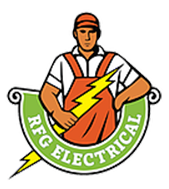F.A.Q.
Frequently Asked Questions
can a home owner do their own electrical?
Only the home owner on title and a licenced electrical contractor can perform work on your home. Keep in mind, electricity is very dangerous. If you dont feel confident about safely performing the task contact a contractor for help.
my fuse blew, now what?
Fuses are different than breakers in that they need to be replaced with a matching fuse. Start by unpluging any devices or appliances connected to the circuit. Then, turn the main poer switch off. unscrew the broken fuse and replace it with your new one. switch the main back on and plug your items back in. If the new fuse blows again contact an electrical contractor.
Do I have to replace my knob and tube wiring?
As long as the wiring hasn't been tampered with, and the origionial installation has been maintained it should be safe. Knob and tube wiring is only rated to 15 amps so greater power needs would require replacement. Contact an Electrical contractor to ensure that it's in safe working order, or to inqure about replacement.
what are my payment options?
we accept all forms of payment including credit, debit, e-transfer, and cash. Ask us about our financing options.
are permits required for electrical jobs?
In short, yes. Electrical work done in the home must be permited and inspected by the ESA (electrical safety athority).
what are power surges? and how do i protect myself from them?
Surges, or transients are momentary spikes in the power that enters your home. this can be caused by lightening strikes, or even electric motors turning on and off. The best way to protect your devices from spikes are surge protectors. These are available for individule devices as well as for the all of the connections in your home.

